Animals Toil Under the Scorching Sun in the Ancient City of Petra
PETA Asia’s exposé of working animals in Petra reveals the terrible suffering of horses, donkeys, and camels forced to carry tourists under the hot desert sun.
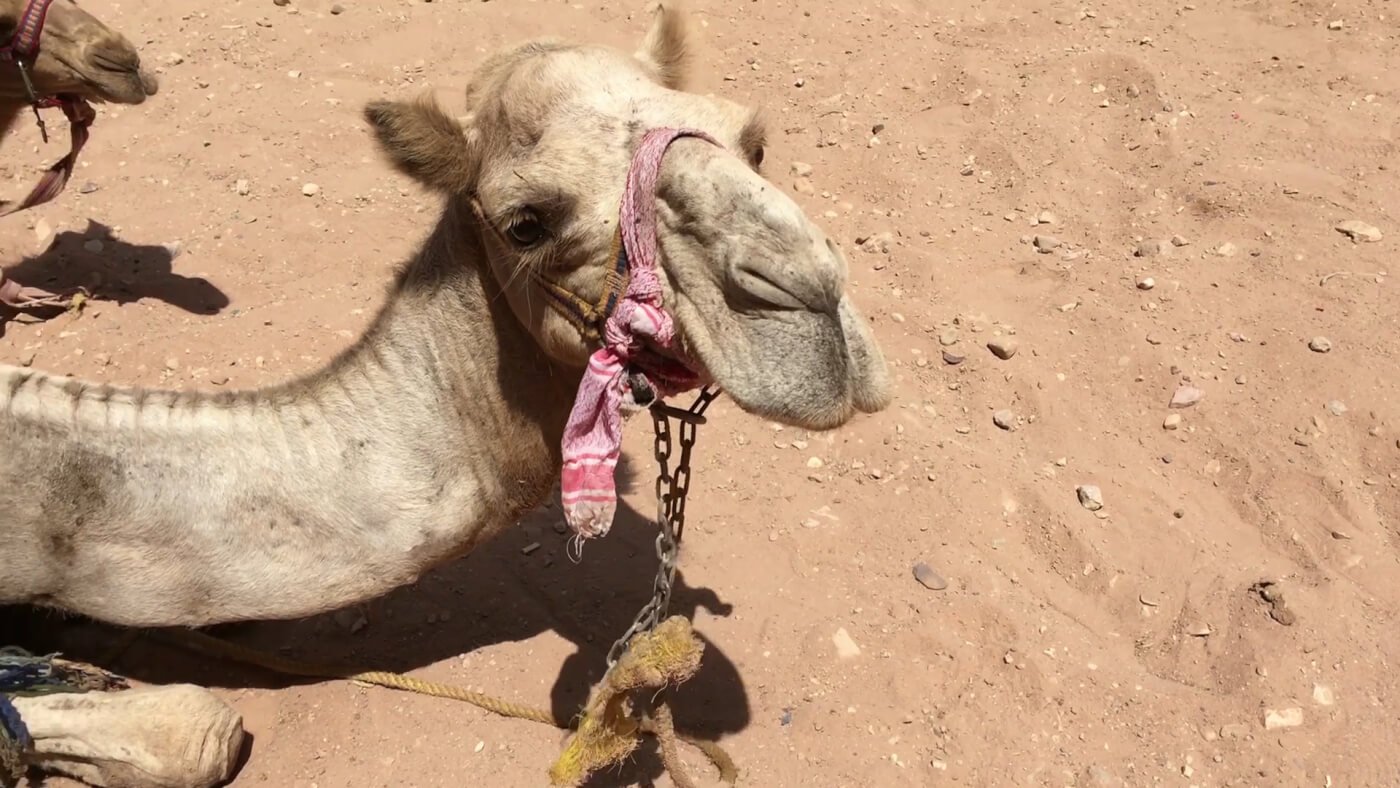
Update October 23, 2020:
In a huge victory for animals, Egypt’s tourism ministry announced plans to ban camel and horse rides around the pyramids at Giza and in the archaeological areas. PETA is calling on the ancient city of Petra to follow suit. The COVID-19 pandemic has stopped tourism in the park for now, but horses, camels, and donkeys have been suffering and will continue to do so while carrying tourists up 900 steps to the temple and hauling carriages filled with visitors in the scorching heat. All animal rides need to be banned.
Update: The PETA-supported on-site veterinary clinic treats donkeys and other animals, like horses and camels, who have been injured or overworked—all at no cost to their owners. Some of the animals are suffering from malnutrition, and most have painful saddle sores, are lame, and have wounds where hobbles have eaten into their flesh. Some have been deliberately cut with razor blades or stoned or Tasered by disaffected young people. Others are suffering from hoof deformities, abscesses, skin conditions, anemia, and more. Most have never seen a veterinarian in their lives.
So far, PETA has treated well over 1,000 donkeys in Petra. But to prevent more suffering, the city needs to replace animal rides with mechanized vehicles.
Original Post:
Visitors go to Petra to marvel at its ancient monuments and temples, yet the “Lost City” has a dark and ugly side: More than 1,300 horses, donkeys, and camels are forced to carry tourists or pull carriages in the city every day, and they are suffering terribly.
Handlers routinely whip and beat the animals, even hitting them in the head with rocks, as they haul tourists on a grueling 6.2-mile trek in the sweltering heat, and there’s no water or shade for them. Donkeys are forced to carry people up and down the 900 treacherously steep and eroded stone steps to the city’s monastery. If they resist or falter, the beatings often intensify.
Donkeys have fallen over the edge, and young people have deliberately pushed them over. Authorities’ lack of interest in helping these animals is blatant: Indignant tourists are directed by the Petra Development and Tourism Region Authority to report cruelty to animals by sending a message to an e-mail address that doesn’t even work. Our meetings with the government have resulted in absolutely no changes, and it doesn’t help us with our initiatives.
Dr. Sameh Nabil, a veterinarian, writes, “A lot of people call donkeys stupid … however, the truth is far from it … donkeys have self-preservation, so if they are tired, or deem a situation too dangerous, that is when they become obstinate … because they value their life.” He goes on: “All they want in return is for us to be kind to them, treat them with compassion and dignity and kindness.”
As PETA Asia’s video shows, visitors who choose to ride these animals are directly contributing to their pain and misery.
Beaten and Broken
Handlers repeatedly hit the weary animals with anything at hand—including hard plastic pipes, ropes, chains, whips, and even rocks—to keep them moving.
Even when animals are too exhausted to go on, they are often viciously beaten, something that we have caught on film. When one donkey balked at carrying more tourists after having just finished a tour, he was kicked in the stomach by his handler so hard that even a bystander recoiled, and although the poor donkey attempted to escape the attack, he couldn’t. He was tethered and unable to run away.
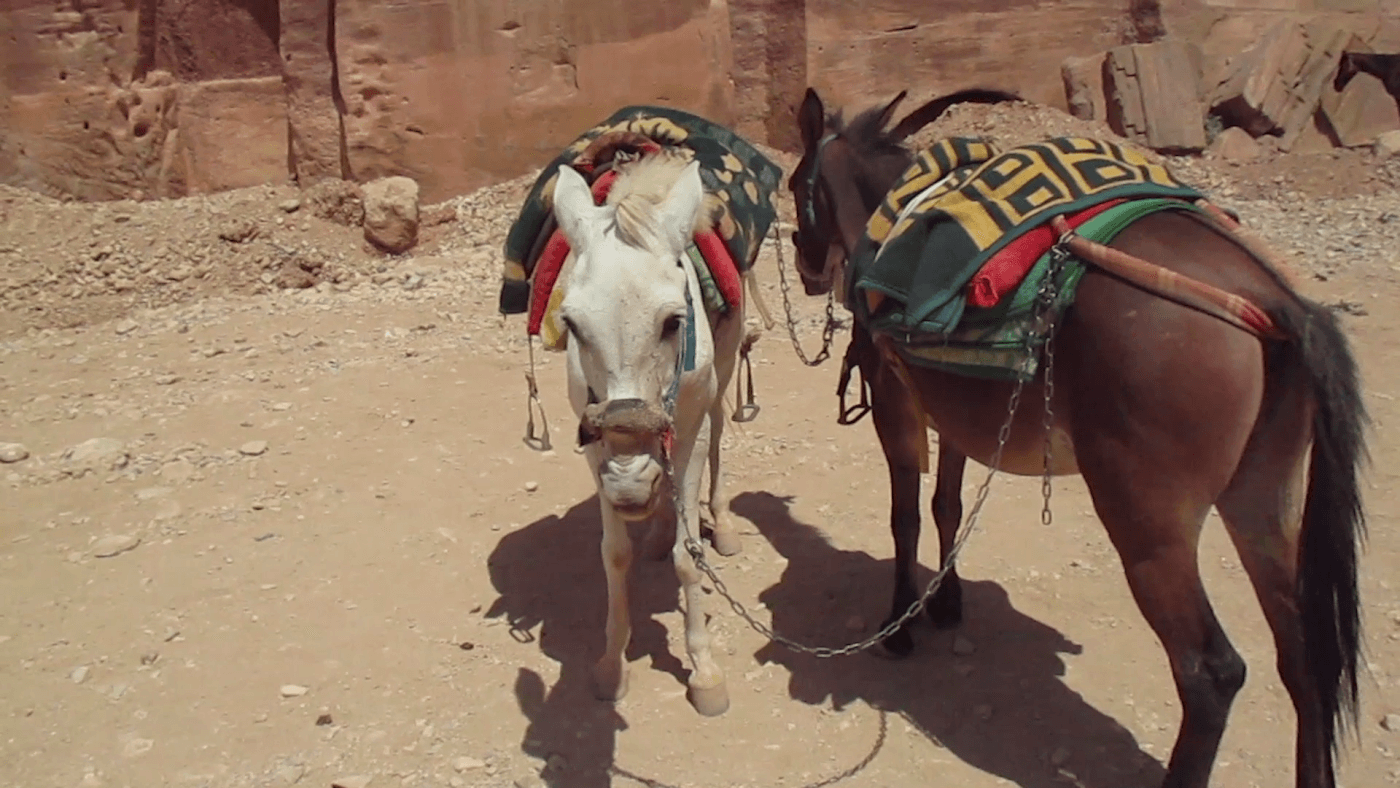



Hot and Thirsty
Despite working all day long in the blistering desert heat, working animals are deprived of water until the end of the day when they return to the “stables”—where the only source of water in the Petra Archaeological Park is located.
Between rides, they’re kept tied up, with no shade or relief from the heat. Some are tied so tightly that they can’t even lie down but instead have to wait for the next paying customer while standing up. In winter, they are left shivering in the bitter cold of the desert night, often hungry and without shelter or a blanket. They have nothing to keep them warm.

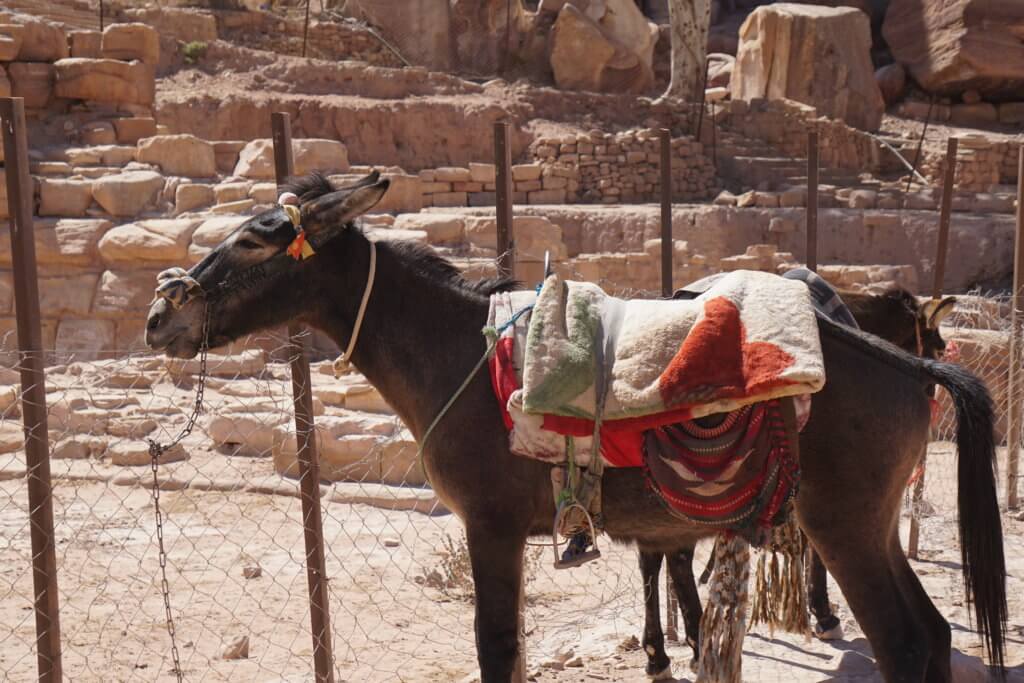
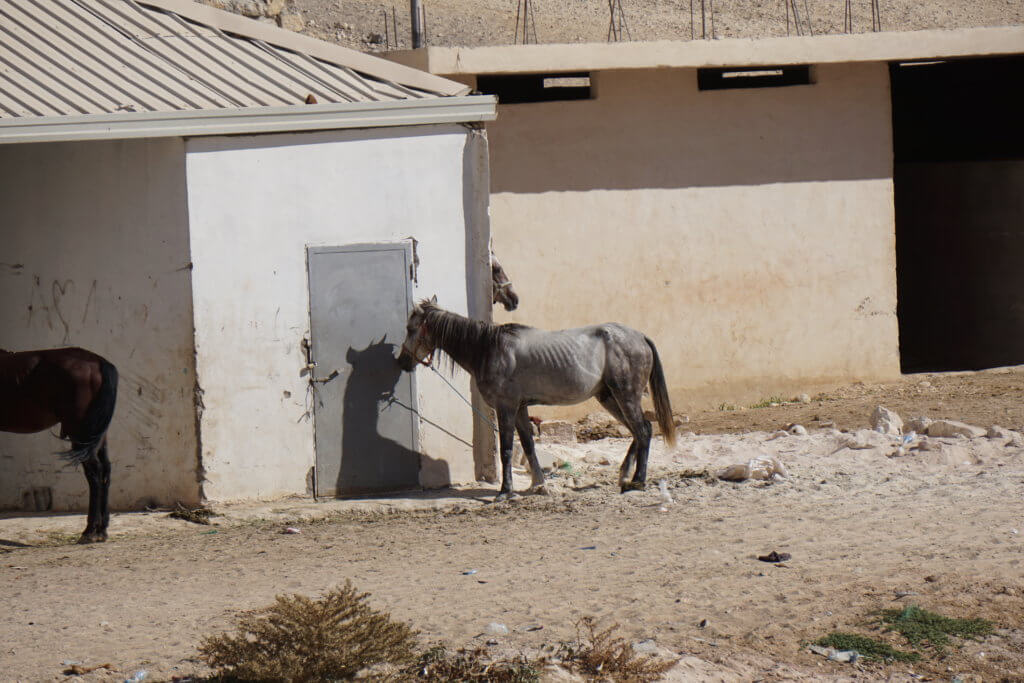

Wounded and Bleeding
Many of the animals had wounds caused by the chains and ropes tied tightly around them: The men even use metal chains over the donkeys’ faces, which cut into their flesh. A PETA Asia eyewitness filmed camels forced to work despite having fly-infested, open wounds caused by their bridles, a daily sight.

You Can Help Stop This
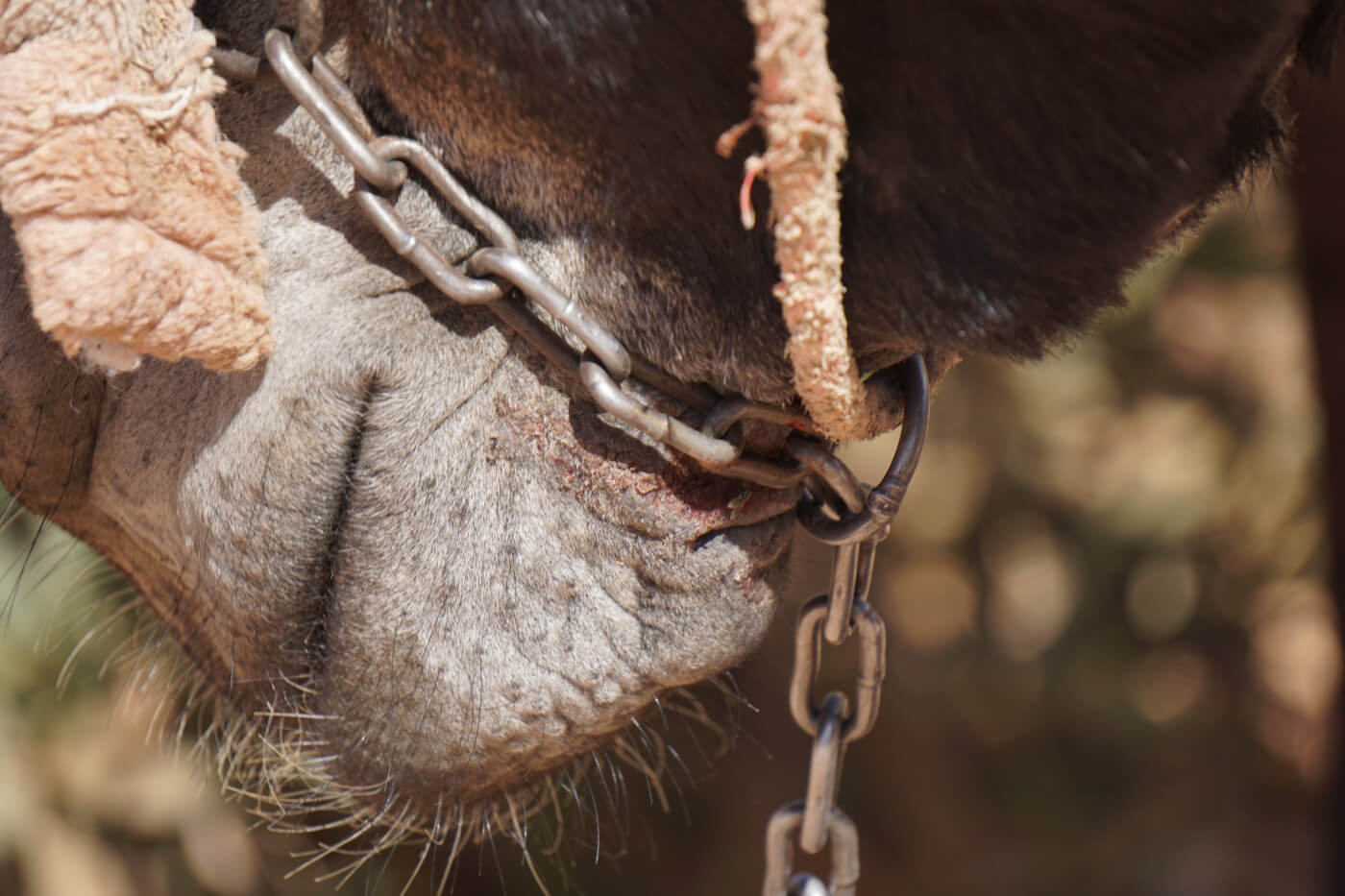
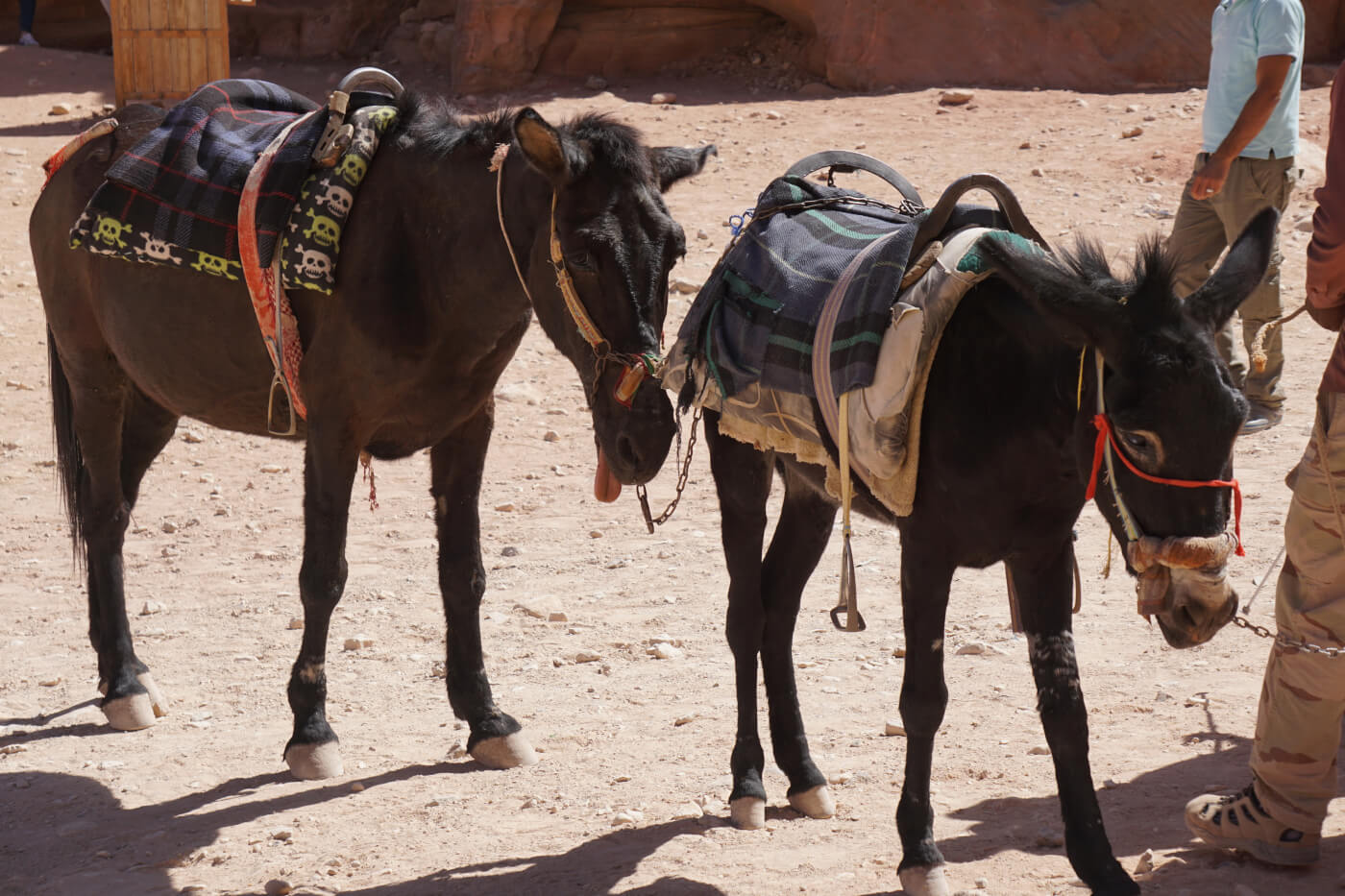
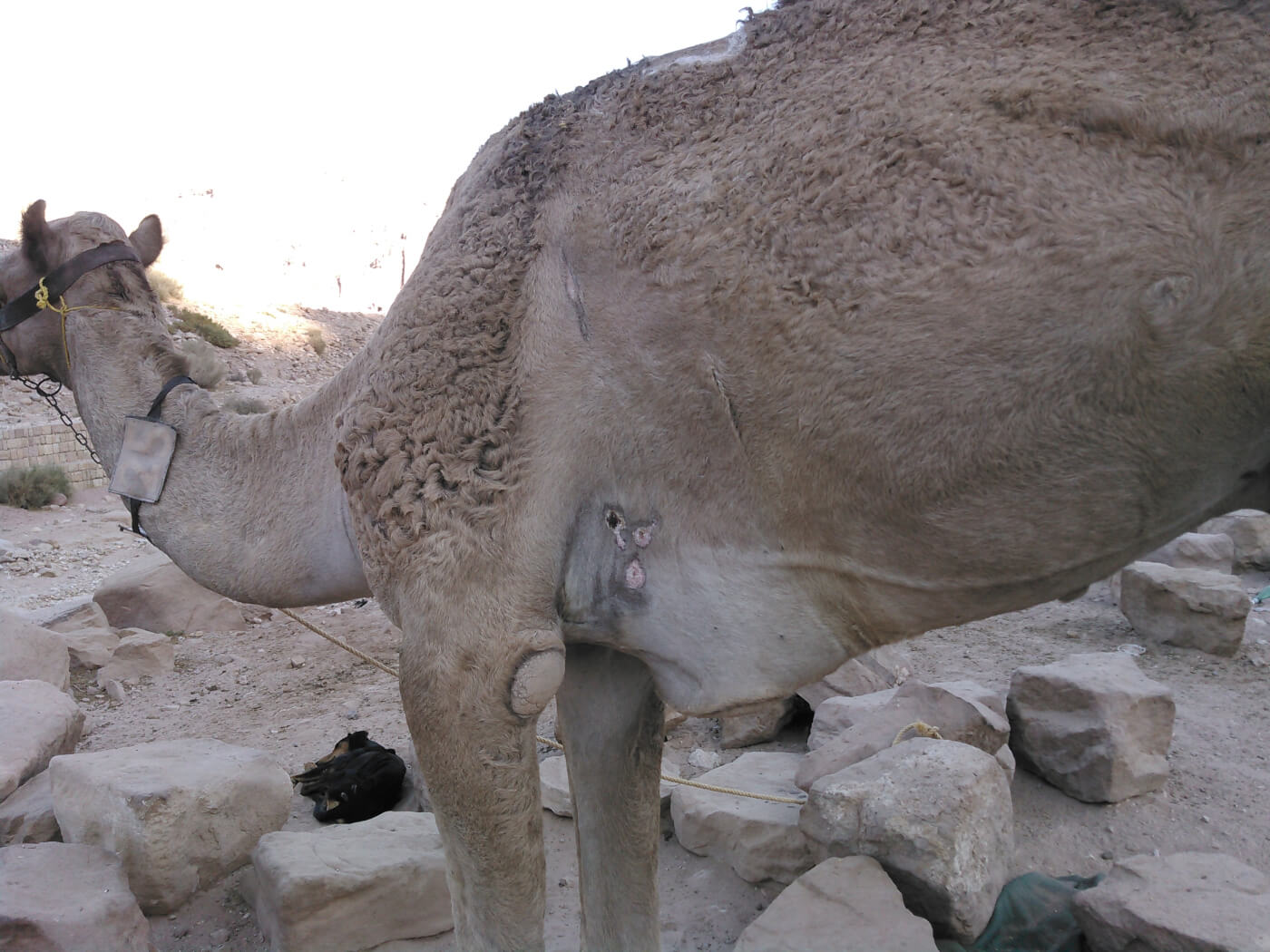
Jordan can and must replace Petra’s working horses, donkeys, mules, and camels with modern motorized vehicles and spare them a lifetime of suffering. Please use the form below to urge the United Nations Educational, Scientific and Cultural Organization (UNESCO) to act now.